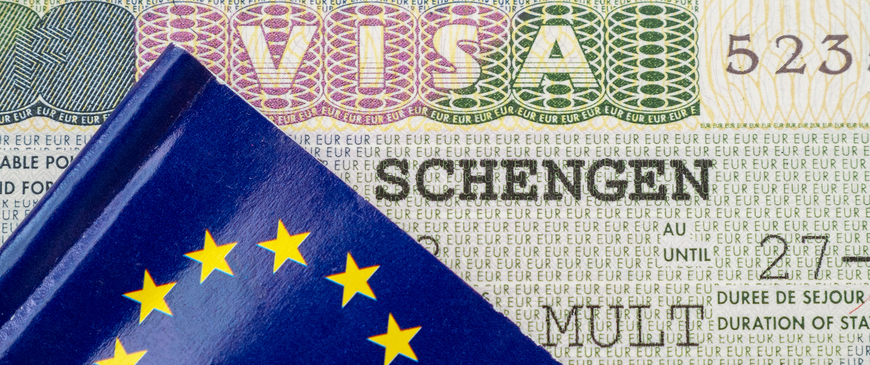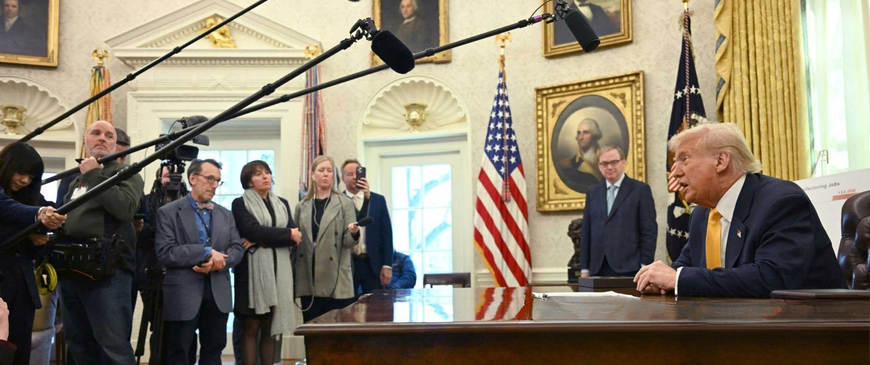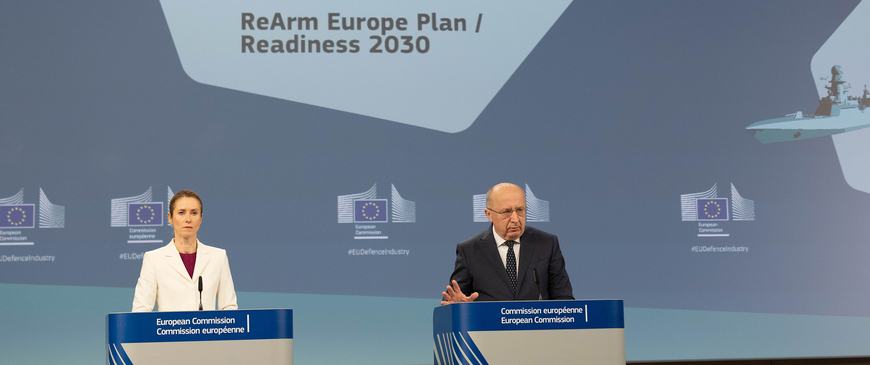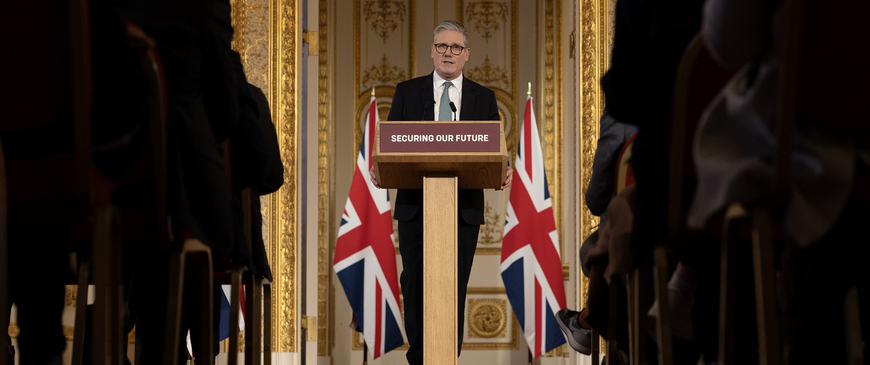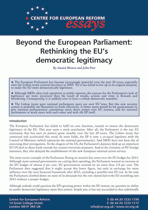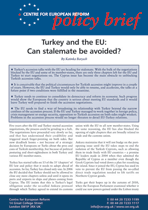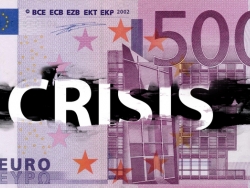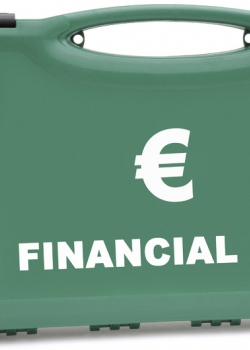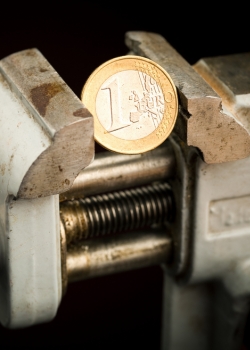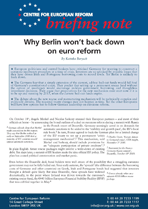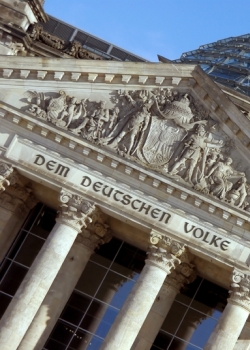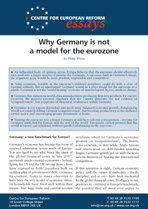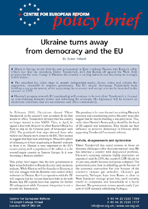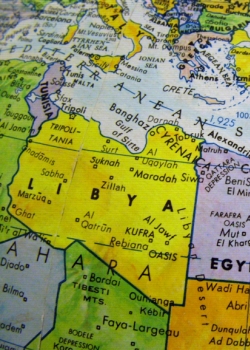Research
Beyond the European Parliament: Rethinking the EU's democratic legitimacy
21 December 2010
The European Parliament plays a crucial role in the EU's legislative process, but is little loved in many parts of the EU. Even if all MEPs became wise, hard-working and responsible, the Parliament would still find it hard to claim a proper democratic mandate.
Has Ukraine lost appetite for reforms?
17 December 2010
In a study on Ukraine published in October, the CER gave President Viktor Yanukovich credit for passing difficult economic reforms but criticised his efforts to suppress political opposition. Since then, reforms have stalled while the concentration of power in the president's hands has continued unabated.
Turkey and the EU: Can stalemate be avoided?
16 December 2010
Turkey's accession to the EU is heading for an impasse. The bulk of the membership talks are blocked. Unless there is progress over Cyprus or Nicolas Sarkozy starts welcoming Turkish membership – both unlikely prospects – the EU and Turkey will soon run out of policy chapters to negotiate.
Eurozone: Time for damage limitation
09 December 2010
Time is running out to prevent the eurozone crisis from imperilling Europe's banking system and with it the integrity of the currency union. It is beholden on policy-makers to minimise the economic (and hence political costs) to the EU.
The eurozone enters a critical phase
01 December 2010
On November 21st Ireland accepted financial support totalling around €90 billion from the EU and the International Monetary Fund (IMF). There was an awful inevitability about this outcome.
The next five years of the euro crisis: Five key questions
01 December 2010
Will the euro break up?
The euro crisis is rooted in structural imbalances that even on an optimistic scenario will endure for years. Germany has a current account surplus and weak domestic demand, while Greece, Ireland, Italy, Portugal and Spain - after years of profligacy - suffer from current account deficits...
The euro crisis is rooted in structural imbalances that even on an optimistic scenario will endure for years. Germany has a current account surplus and weak domestic demand, while Greece, Ireland, Italy, Portugal and Spain - after years of profligacy - suffer from current account deficits...
Britain cannot afford to neglect EU defence efforts
01 December 2010
Britain is showing an unprecedented interest in closer defence co-operation with its European partners. The coalition government in London should be commended for initiating bilateral deals and projects amongst a limited number of EU countries.
The 'new' Poland and its neighbours
29 November 2010
Poland is shedding its 'new member-state' image and is instead trying to join the exclusive club of big EU countries. It is a laudable and so far largely successful goal, but not one without risks.
Issue 75 - 2010
26 November 2010
- The eurozone enters a critical phase, Simon Tilford
- The next five years of the euro crisis: Five key questions, Charles Grant
- Britain cannot afford to neglect EU defence efforts, Clara Marina O'Donnell
Why Berlin won't back down on euro reform
19 November 2010
The German plan for a eurozone insolvency procedure has spooked the markets and drawn political fire.
Eurozone policy-makers are playing with fire
15 November 2010
There is an awful inevitability about the latest instalment of the eurozone crisis, which looks highly likely to culminate in Ireland being forced to seek a bailout from the European Financial Stability Fund (EFSF).
Europe dances to Germany's tune
03 November 2010
For much of this year, the response of European leaders to the eurozone crisis has been hesitant and fractious. But when the European Council met in Brussels on October 28th and 29th, the EU appeared to be acting with greater purpose and sense of direction.
Britain's defence review: Good news for European defence?
28 October 2010
On October 19th, the UK's coalition government published its 'strategic defence and security review' (SDSR), laying out the future shape of Britain's armed forces. As was to be expected at a time of budget austerity, the SDSR foresees significant cuts in military capabilities.
Why Germany is not a model for the eurozone
22 October 2010
Many Europeans believe that confidence in the eurozone is best restored by turning the region into a larger version of present-day Germany. However, Germany is not the world-beating economy of current myth.
Ukraine turns away from democracy and the EU
15 October 2010
Ukraine is turning inwards and becoming increasingly authoritarian. The new president, Viktor Yanukovich, has taken steps to muzzle independent media, harass critics and sideline the opposition.
What currency wars mean for the eurozone
15 October 2010
The dollar has now fallen to $1.40 against the euro. This is still below the low of almost $1.60 that it reached in the middle in July 2008, but it represents a steep decline from under $1.20 in early June. Moreover, the US currency is likely to weaken further.
The EU should be much bolder on energy efficiency
12 October 2010
The most pain-free way for European governments to fight climate change is to use energy more efficiently. At a recent energy conference hosted by the European Commission, it struck me that the EU still has a poverty of ambition when it comes to energy efficiency.
Divisions remain over euro reform
08 October 2010
Europeans agree that the management of the euro must be improved to prevent future crises, or deal with them better if and when they happen.
Europe and the Middle East - perspectives on Major Policy Issues: What does the future hold for the EU’s efforts in the Middle East?
08 October 2010
Al Siyassa Al Dawliya/European Commission
The Middle East has been a region of major importance to the EU for decades; however, member-states have struggled to fulfil their objectives of supporting peace, prosperity and good governance amongst their southern neighbours.
The political consequences of the euro crisis
01 October 2010
The eurozone crisis is changing the way the EU works. It is reinforcing a number of trends that had already been visible over the last decade or so: a shift towards a Union in which governments are in the driving seat, large countries matter more than small ones, and more decisions are taken by subsets of member-states.

